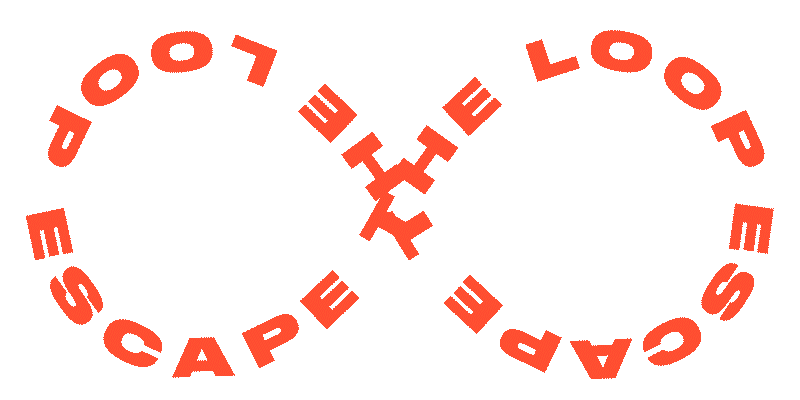
ESCAPE
THE LOOPESCAPE
THE LOOPESCAPE
THE LOOPESCAPE
THE LOOPESCAPE
THE LOOPESCAPE
THE LOOP
Stuck in a loop?
Have you ever experienced repetitive, unwanted thoughts?
Then you may be suffering from Obsessive Compulsive Disorder, also known as OCD
What is ocd?
It is a widely held belief that obsessive-compulsive disorder (OCD) is a mild problem or even “quirky” personality trait that is nothing more than hand washing. In reality, OCD is a clinically recognized mental health disorder that affects 1-2% of the population. It can be highly debilitating and must be taken seriously, starting from a young age.
People with OCD experience intensely negative, repetitive, and intrusive thoughts (obsessions) combined with a chronic feeling of doubt or danger. In order to quell these thoughts and quieten the anxiety, those with OCD will often repeat an action, again and again.
OCD is diagnosed by a mental health professional who looks for three key things:

THE PERSON HAS OBSESSIONS

THE PERSON DOES COMPULSIONS

IT GETS IN THE WAY OF DAILY ACTIVITIES
A COMMON MANIFESTATION
OF OCD IS REPEATING OBSESSIONS
ESCAPE
THE LOOPESCAPE
THE LOOPESCAPE
THE LOOPESCAPE
THE LOOPESCAPE
THE LOOPESCAPE
THE LOOP
Help is here!
First of all, OCD can be treated! With Cognitive Behavioral Therapy (CBT) and medication. Most people will find that these treatments are effective and help get their lives back on track. Ask your local OCD organization for help.
Start here
ESCAPE
THE LOOPESCAPE
THE LOOPESCAPE
THE LOOPESCAPE
THE LOOPESCAPE
THE LOOPESCAPE
THE LOOP
The Escape the Loop campaign is made in collaboration with the International OCD Foundation (IOCDF), a donor-supported nonprofit whose mission is to help those impacted by OCD and related disorders live full and productive lives.
The phrase, “I’m so OCD” has become part of modern English parlance, casually dropped by non-OCD sufferers in conversation when referring to being overly tidy, particular about something, or preoccupied with any number of things. Being neat or enjoying organizing your shoes, however, does not make you “OCD.”
The aim of this campaign is to create awareness and help young adults recognize the early signs of OCD so that they may seek treatment before it progresses.
The campaign consists of a series of films, played in small loops, or gifs.
All films are featured on Giphy, which boasts 500 million daily active users with more than seven billion gifs shared every day. And gifs are, in essence: repetitive loops–just like OCD.
These films depict the most common OCD traits and, when interacted with, redirect the viewer to the IOCDF’s website for more information.

The International OCD Foundation is a donor-supported nonprofit organization whose mission is to help those affected by obsessive compulsive disorder (OCD) and related disorders to live full and productive lives.
For more info about OCD, visit: IOCDF.ORG
For more info about the Escape the Loop campaign, contact info@iocdf.org or:
INTERNATIONAL OCD FOUNDATION
PO Box 961029, Boston, MA 02196
617.973.5801
